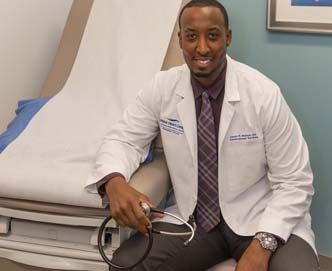
Here’s a little something you won’t find in the history books.
When the 21st amendment repealed 14 years of prohibition in this country back in 1933, America’s heart health very likely started getting better.
At least that’s the conclusion WebMD reports in an article from August of this year that reiterates the known benefits of alcohol for cardiovascular health.
Some of the biggest names in medicine – along with local cardiologist Dr. Daniel Wubneh of the Scully Heart Center – agree.
“A large study published this month,” says WebMD, “showed that light to moderate drinkers lowered their chances of an early death by about 20 percent compared with nondrinkers. Their risk of dying from heart disease dropped even more dramatically.”
The Mayo clinic adds that moderate alcohol consumption can “reduce your risk of developing and dying from heart disease; possibly reduce your risk of ischemic stroke (when the arteries to your brain become narrowed or blocked, causing severely reduced blood flow) and possibly reduce your risk of diabetes.”
The Harvard School of Public Health has hopped onto the bandwagon, too, reporting that “more than 100 prospective studies show an inverse association between moderate drinking and risk of heart attack, ischemic (clot-caused) stroke, peripheral vascular disease, sudden cardiac death and death from all cardiovascular causes. The effect is fairly consistent, corresponding to a 25 percent to 40 percent reduction in risk.”
Yet while a possible 40 percent decrease in potentially fatal heart problems might sound like a dream come true, Wubneh is quick to issue a warning – a stern warning echoed by all the sources named above.
“It is also known,” says the tall, genial Wubneh, “that heavy or excessive alcohol consumption has many, many deleterious or negative effects.”
For example, while light or moderate alcohol consumption has been shown to reduce the risk of cardiovascular disease, both the World Health Organization and the National Toxicology Program of the U.S. Department of Health and Human Services now list all alcoholic beverages as human carcinogens.
In other words, they can cause cancer.
For example, head and neck cancers, esophageal cancer, liver cancer, breast cancer and colorectal cancer, according to the National Cancer Institute, can all be linked to alcohol consumption.
That applies to beer, wine and distilled spirits – and that’s just the tip if the ice cube. Or the iceberg.
As Wubneh points out, as we age, we metabolize everything we put inside our bodies – alcohol, prescription medications, even food – differently than we did when we were younger. Moreover, he continues, “medications for blood pressure and diabetes and certain antibiotics,” along with a variety of anti-anxiety medications, “should not be used in conjunction with alcohol.”
And while WebMD defines light drinkers as “those who had fewer than three drinks per week while moderate drinkers had more than three drinks but no more than 14 for men [per week] and seven for women per week,” it’s not merely a matter of averages.
As Harvard clearly states, “What you drink doesn’t seem to be nearly as important as how you drink. Having seven drinks on a Saturday night and then not drinking the rest of the week isn’t at all the equivalent of having one drink a day. The weekly total may be the same, but the health implications aren’t.”
The WebMD article also points out that people who exceed that 14-drink weekly total (moderate drinking) for men or seven drinks a week for women “have a 27 percent higher chance of dying of cancer and an 11 percent higher chance of dying early from any cause.”
That said, Dr. Suzanne Steinbaum, director of Women’s Heart Health at Lenox Hill Hospital in New York City, further muddles the picture by saying “there is no ‘one size fits all’ for alcohol.” Age, body weight and pre-existing conditions can all come into play.
If you do drink, it may well be doing your heart good, but the best way to find out for sure is to have an honest discussion with your cardiologist or primary care physician.
That conversation just might save or possibly even extend your life.
Cheers.
Dr. Daniel Wubneh is with the Scully Heart Center in Vero Beach. His office is at 3450 11th Court, Suite 102. The phone number is 772-778-8687.



